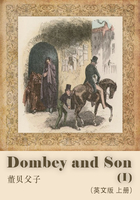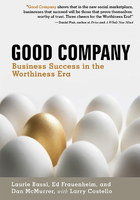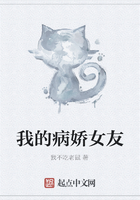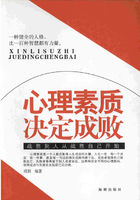FOR a number of days after the interview, Chilo did not show himself anywhere. Vinicius, since he had learned from Acte that Lygia loved him, was a hundred times more eager to find her, and began himself to search. He was unwilling, and also unable,to ask aid of Caesar, who was in great fear because of the illness of the infant Augusta.
Sacrifices in the temples did not help, neither did prayers and offerings, nor the art of physicians, nor all the means of enchantment to which they turned finally.In a week the child died. Mourning fell upon the court and Rome. Caesar, who at the birth of the infant was wild with delight, was wild now from despair, and,confining himself in his apartments, refused food for two days; and though the palace was swarming with senators and Augustians, who hastened with marks of sorrow and sympathy, he denied audience to every one. The senate assembled in an extraordinary session,at which the dead child was pronounced divine. It was decided to rear to her a temple and appoint a special priest to her service. New sacrifices were offered in other temples in honor of the deceased; statues of her were cast from precious metals; and her funeral was one immense solemnity, during which the people wondered at the unrestrained marks of grief which Caesar exhibited; they wept with him, stretched out their hands for gifts, and above all amused themselves with the unparalleled spectacle.
That death alarmed Petronius. All knew in Rome that Poppaea ascribed it to enchantment. The physicians,who were thus enabled to explain the vanity of their efforts, supported her; the priests, whose sacrifices proved powerless, did the same, as well as the sorcerers, who were trembling for their lives, and also the people. Petronius was glad now that Lygia had fled; for he wished no evil to Aulus and Pomponia,and he wished good to himself and Vinicius; therefore when the cypress, set out before the Palatine as a sign of mourning, was removed, he went to the reception appointed for the senators and Augustians to learn how far Nero had lent ear to reports of spells, and to neutralize results which might come from his belief.
Knowing Nero, he thought, too, that though he did not believe in charms, he would feign belief, so as to magnify his own suffering, and take vengeance on some one, finally, to escape the suspicion that the gods had begun to punish him for crimes. Petronius did not think that Caesar could love really and deeply even his own child; though he loved her passionately,he felt certain, however, that he would exaggerate his suffering. He was not mistaken. Nero listened,with stony face and fixed eyes, to the consolation offered by knights and senators. It was evident that,even if he suffered, he was thinking of this: What impression would his suffering make upon others? He was posing as a Niobe, and giving an exhibition of parental sorrow, as an actor would give it on the stage.He had not the power even then to endure in his silent and as it were petrified sorrow, for at moments he made a gesture as if to cast the dust of the earth on his head, and at moments he groaned deeply; but seeing Petronius, he sprang up and cried in a tragic voice,so that all present could hear him,—"Eheu! And thou art guilty of her death! At thy advice the evil spirit entered these walls,—the evil spirit which, with one look, drew the life from her breast! Woe is me! Would that my eyes had not seen the light of Helios! Woe is me! Eheu! eheu!"
And raising his voice still more, he passed into a despairing shout; but Petronius resolved at that moment to put everything on one cast of the dice;hence, stretching out his hand, he seized the silk kerchief which Nero wore around his neck always,and, placing it on the mouth of the Imperator, said solemnly,—"Lord, Rome and the world are benumbed with pain; but do thou preserve thy voice for us!"
Those present were amazed; Nero himself was amazed for a moment. Petronius alone was unmoved;he knew too well what he was doing. He remembered,besides, that Terpnos and Diodorus had a direct order to close Caesar's mouth whenever he raised his voice too much and exposed it to danger.
"O Caesar!" continued he, with the same seriousness and sorrow, "we have suffered an immeasurable loss;let even this treasure of consolation remain to us!"
Nero's face quivered, and after a while tears came from his eyes. All at once he rested his hands on Petronius's shoulders, and, dropping his head on his breast, began to repeat, amid sobs,
"Thou alone of all thought of this,—thou alone, O Petronius! thou alone!"
Tigellinus grew yellow from envy; but Petronius continued,—
"Go to Antium! there she came to the world, there joy flowed in on thee, there solace will come to thee.Let the sea air freshen thy divine throat; let thy breast breathe the salt dampness. We, thy devoted ones, will follow thee everywhere; and when we assuage thy pain with friendship, thou wilt comfort us with song.
"True!" answered Nero, sadly, "I will write a hymn in her honor, and compose music for it."
"And then thou wilt find the warm sun in Baiae.
"And afterward—forgetfulness in Greece."
"In the birthplace of poetry and song."
And his stony, gloomy state of mind passed away gradually, as clouds pass that are covering the sun;and then a conversation began which, though full of sadness, yet was full of plans for the future,—touching a journey, artistic exhibitions, and even the receptions required at the promised coming of Tiridates, King of Armenia. Tigellinus tried, it is true, to bring forward again the enchantment; but Petronius, sure now of victory, took up the challenge directly.
"Tigellinus," said he, "dost thou think that enchantments can injure the gods?"
"Caesar himself has mentioned them," answered the courtier.
"Pain was speaking, not Caesar; but thou—what is thy opinion of the matter?"
"The gods are too mighty to be subject to charms."
"Then wouldst thou deny divinity to Caesar and his family?"
"Peractum est!" muttered Eprius Marcellus, standing near, repeating that shout which the people gave always when a gladiator in the arena received such a blow that he needed no other.
Tigellinus gnawed his own anger. Between him and Petronius there had long existed a rivalry touching Nero. Tigellinus had this superiority, that Nero acted with less ceremony, or rather with none whatever in his presence; while thus far Petronius overcame Tigellinus at every encounter with wit and intellect.
So it happened now. Tigellinus was silent, and simply recorded in his memory those senators and knights who, when Petronius withdrew to the depth of the chamber, surrounded him straightway, supposing that after this incident he would surely be Caesar's first favorite.
Petronius, on leaving the palace, betook himself to Vinicius, and described his encounter with Caesar and Tigellinus.
"Not only have I turned away danger," said he, "from Aulus Plautius, Pomponia, and us, but even from Lygia, whom they will not seek, even for this reason, that I have persuaded Bronzebeard, the monkey, to go to Antium, and thence to Naples or Baiae and he will go. I know that he has not ventured yet to appear in the theatre publicly; I have known this long time that he intends to do so at Naples. He is dreaming, moreover, of Greece, where he wants to sing in all the more prominent cities, and then make a triumphal entry into Rome, with all the crowns which the 'Graeculi' will bestow on him. During that time we shall be able to seek Lygia unhindered and secrete her in safety. But has not our noble philosopher been here yet?"
"Thy noble philosopher is a cheat. No; he has not shown himself, and he will not show himself again!"
"But I have a better understanding, if not of his honesty, of his wit. He has drawn blood once from thy purse, and will come even for this, to draw it a second time."
"Let him beware lest I draw his own blood."
"Draw it not; have patience till thou art convinced surely of his deceit. Do not give him more money,but promise a liberal reward if he brings thee certain information. Wilt thou thyself undertake something?""My two freedmen, Nymphidius and Demas, are searching for her with sixty men. Freedom is promised the slave who finds her. Besides I have sent out special persons by all roads leading from Rome to inquire at every inn for the Lygian and the maiden. I course through the city myself day and night, counting on a chance meeting."
"Whenever thou hast tidings let me know, for I must go to Antium."
"I will do so."
"And if thou wake up some morning and say, 'It is not worth while to torment myself for one girl, and take so much trouble because of her,' come to Antium. There will be no lack of women there, or amusement."Vinicius began to walk with quick steps. Petronius looked for some time at him, and said at last,—"Tell me sincerely, not as a mad head, who talks something into his brain and excites himself, but as a man of judgment who is answering a friend: Art thou concerned as much as ever about this Lygia?"
Vinicius stopped a moment, and looked at Petronius as if he had not seen him before; then he began to walk again. It was evident that he was restraining an outburst. At last, from a feeling of helplessness,sorrow, anger, and invincible yearning, two tears gathered in his eyes, which spoke with greater power to Petronius than the most eloquent words.
Then, meditating for a moment, he said,—"It is not Atlas who carries the world on his shoulders, but woman; and sometimes she plays with it as with a ball."
"True," said Vinicius.
And they began to take farewell of each other. But at that moment a slave announced that Chilo Chilonides was waiting in the antechamber, and begged to be admitted to the presence of the lord.
Vinicius gave command to admit him immediately,and Petronius said,—"Ha! have I not told thee? By Hercules! keep thy calmness; or he will command thee, not thou him."
"A greeting and honor to the noble tribune of the army, and to thee, lord," said Chilo, entering. "May your happiness be equal to your fame, and may your fame course through the world from the pillars of Hercules to the boundaries of the Arsacidae."
"A greeting, O lawgiver of virtue and wisdom," answered Petronius.
But Vinicius inquired with affected calmness, "What dost thou bring?"
"The first time I came I brought thee hope, O lord;at present, I bring certainty that the maiden will be found."
"That means that thou hast not found her yet?"
"Yes, lord; but I have found what that sign means which she made. I know who the people are who rescued her, and I know the God among whose worshippers to seek her."
Vinicius wished to spring from the chair in which he was sitting; but Petronius placed his hand on his shoulder, and turning to Chilo said,—"Speak on!"
"Art thou perfectly certain, lord, that she drew a fish on the sand?"
"Yes," burst out Vinicius.
"Then she is a Christian and Christians carried her away." A moment of silence followed.
"Listen, Chilo," said Petronius. "My relative has predestined to thee a considerable sum of money for finding the girl, but a no less considerable number of rods if thou deceive him. In the first case thou wilt purchase not one, but three scribes; in the second, the philosophy of all the seven sages, with the addition of thy own, will not suffice to get thee ointment.
"The maiden is a Christian, lord," cried the Greek.
"Stop, Chilo. Thou art not a dull man. We know that Junia and Calvia Crispinilla accused Pomponia Graecina of confessing the Christian superstition;but we know too, that a domestic court acquitted her.Wouldst thou raise this again? Wouldst thou persuade us that Pomponia, and with her Lygia, could belong to the enemies of the human race, to the poisoners of wells and fountains, to the worshippers of an ass's head, to people who murder infants and give themselves up to the foulest license? Think, Chilo, if that thesis which thou art announcing to us will not rebound as an antithesis on thy own back."
Chilo spread out his arms in sign that that was not his fault, and then said,—"Lord, utter in Greek the following sentence: Jesus Christ, Son of God,Saviour." [Iesous Christos, Theou Uios, Soter.]
"Well, I have uttered it. What comes of that?"
"Now take the first letters of each of those words and put them into one word."
"Fish!" said Petronius with astonishment. [Ichthus,the Greek word for "fish."
"There, that is why fish has become the watchword of the Christians," answered Chilo, proudly.
A moment of silence followed. But there was something so striking in the conclusions of the Greek that the two friends could not guard themselves from amazement.
"Vinicius, art thou not mistaken?" asked Petronius. "Did Lygia really draw a fish for thee?
"By all the infernal gods, one might go mad!" cried the young man, with excitement. "If she had drawn a bird for me, I should have said a bird."
"Therefore she is a Christian," repeated Chilo.
"This signifies," said Petronius, "that Pomponia and Lygia poison wells, murder children caught on the street, and give themselves up to dissoluteness! Folly!Thou, Vinicius, wert at their house for a time, I was there a little while; but I know Pomponia and Aulus enough, I know even Lygia enough, to say monstrous and foolish! If a fish is the symbol of the Christians,which it is difficult really to deny, and if those women are Christians, then, by Proserpina! evidently Christians are not what we hold them to be."
"Thou speakest like Socrates, lord," answered Chilo."Who has ever examined a Christian? Who has learned their religion? When I was travelling three years ago from Naples hither to Rome (oh, why did I not stay in Naples!), a man joined me, whose name was Glaucus,of whom people said that he was a Christian; but in spite of that I convinced myself that he was a good and virtuous man."
"Was it not from that virtuous man that thou hast learned now what the fish means?
"Unfortunately, lord, on the way, at an inn, some one thrust a knife into that honorable old man; and his wife and child were carried away by slave-dealers. I lost in their defence these two fingers; since, as people say, there is no lack among Christians of miracles, I hope that the fingers will grow out on my hand again.
"How is that? Hast thou become a Christian?"
"Since yesterday, lord, since yesterday! The fish made me a Christian. But see what a power there is in it. For some days I shall be the most zealous of the zealous, so that they may admit me to all their secrets;and when they admit me to their secrets, I shall know where the maiden is hiding. Perhaps then my Christianity will pay me better than my philosophy. I have made a vow also to Mercury, that if he helps me to find the maiden, I will sacrifice to him two heifer of the same size and color and will gild their horns."
"Then thy Christianity of yesterday and thy philosophy of long standing permit thee to believe in Mercury?"
"I believe always in that in which I need to believe;that is my philosophy, which ought to please Mercury.Unfortunately (ye know, worthy lords, what a suspicious god he is), he does not trust the promises even of blameless philosophers, and prefers the heifers in advance; meanwhile this outlay is immense.Not every one is a Seneca, and I cannot afford the sacrifice; should the noble Vinicius, however, wish to give something, on account of that sum which he promised—"
"Not an obolus, Chilo!" said Petronius, "not an obolus. The bounty of Vinicius will surpass thy expectations, but only when Lygia is found,—that is, when thou shalt indicate to us her hiding-place.Mercury must trust thee for the two heifers, though I am not astonished at him for not wishing to do so; in this I recognize his acuteness."
"Listen to me, worthy lords. The discovery which I have made is great; for though I have not found the maiden yet, I have found the way in which I must seek her. Ye have sent freedmen and slaves throughout the city and into the country; has any one given you a clew? No! I alone have given one. I tell you more.Among your slaves there may be Christians, of whom ye have no knowledge, for this superstition has spread everywhere; and they, instead of aiding, will betray you. It is unfortunate that they see me here; do thou therefore, noble Petronius, enjoin silence on Eunice;and thou too, noble Vinicius, spread a report that I sell thee an ointment which insures victory in the Circus to horses rubbed with it. I alone will search for her,and single-handed I will find the fugitives; and do ye trust in me, and know that whatever I receive in advance will be for me simply an encouragement,for I shall hope always for more, and shall feel the greater certainty that the promised reward will not fail me. Ah, it is true! As a philosopher I despise money,though neither Seneca, nor even Musonius, nor Cornutus despises it, though they have not lost fingers in any one's defence, and are able themselves to write and leave their names to posterity. But, aside from the slave, whom I intend to buy, and besides Mercury,to whom I have promised the heifers,—and ye know how dear cattle have become in these times,—the searching itself involves much outlay. Only listen to me patiently. Well, for the last few days my feet are wounded from continual walking. I have gone to wine-shops to talk with people, to bakeries, to butchershops, to dealers in olive oil, and to fishermen. I have run through every street and alley; I have been in the hiding places of fugitive slaves; I have lost money,nearly a hundred ases, in playing mora; I have been in laundries, in drying-sheds, in cheap kitchens; I have seen mule-drivers and carvers; I have seen people who cure bladder complaints and pull teeth; I have talked with dealers in dried figs; I have been at cemeteries;and do ye know why? This is why; so as to outline
a fish everywhere, look people in the eyes, and hear what they would say of that sign. For a long time I was unable to learn anything, till at last I saw an old slave at a fountain. He was drawing water with a bucket, and weeping. Approaching him, I asked the cause of his tears. When we had sat down on the steps of the fountain, he answered that all his life he had been collecting sestertium after sestertium, to redeem his beloved son; but his master, a certain Pansa, when the money was delivered to him, took it, but kept the son in slavery. 'And so I am weeping,' said the old man, 'for though I repeat, Let the will of God be done,I, poor sinner, am not able to keep down my tears.'Then, as if penetrated by a forewarning, I moistened my finger in the water and drew a fish for him. To thi he answered, 'My hope, too, is in Christ.' I asked him then, 'Hast thou confessed to me by that sign?' 'I have,'said he; 'and peace be with thee.' I began then to draw him out, and the honest old man told me everything.His master, that Pansa, is himself a freedman of the great Pansa; and he brings stones by the Tiber to Rome, where slaves and hired persons unload them from the boats, and carry them to buildings in the night time, so as not to obstruct movement in the streets during daylight. Among these people many Christians work, and also his son; as the work is beyond his son's strength, he wished to redeem him.But Pansa preferred to keep both the money and the slave. While telling me this, he began again to weep;and I mingled my tears with his,—tears came to me easily because of my kind heart, and the pain in my feet, which I got from walking excessively. I began also to lament that as I had come from Naples only a few days since, I knew no one of the brotherhood,and did not know where they assembled for prayer.He wondered that Christians in Naples had not given me letters to their brethren in Rome; but I explained to him that the letters were stolen from me on the road. Then he told me to come to the river at night, and he would acquaint me with brethren who would conduct me to houses of prayer and to elders who govern the Christian community. When I heard this, I was so delighted that I gave him the sum needed to redeem his son, in the hope that the lordly Vinicius would return it to me twofold."
"Chilo," interrupted Petronius, "in thy narrative falsehood appears on the surface of truth, as oil does on water. Thou hast brought important information;I do not deny that. I assert, even, that a great step is made toward finding Lygia; but do not cover thy news with falsehood. What is the name of that old man from whom thou hast learned that the Christians recognize each other through the sign of a fish?
"Euricius. A poor, unfortunate old man! He reminded me of Glaucus, whom I defended from murderers, and he touched me mainly by this."
"I believe that thou didst discover him, and wilt be able to make use of the acquaintance; but thou hast given him no money. Thou hast not given him an as; dost understand me? Thou hast not given anything."
"But I helped him to lift the bucket, and I spoke of his son with the greatest sympathy. Yes, lord, what can hide before the penetration of Petronius? Well, I did not give him money, or rather, I gave it to him, but only in spirit, in intention, which, had he been a real philosopher, should have sufficed him. I gave it to him because I saw that such an act was indispensable and useful; for think, lord, how this act has won all the Christians at once to me, what access to them it has opened, and what confidence it has roused in them.
"True," said Petronius, "and it was thy duty to do it.""For this very reason I have come to get the means to do it."
Petronius turned to Vinicius,—"Give command to count out to him five thousand sestertia, but in spirit,in intention."
"I will give thee a young man," said Vinicius, "who will take the sum necessary; thou wilt say to Euricius that the youth is thy slave, and thou wilt count out to the old man, in the youth's presence, this money. Since thou hast brought important tidings, thou wilt receive the same amount for thyself. Come for the youth and the money this evening."
"Thou art a real Caesar!" said Chilo. "Permit me,lord, to dedicate my work to thee; but permit also that this evening I come only for the money, since Euricius told me that all the boats had been unloaded,and that new ones would come from Ostia only after some days. Peace be with you! Thus do Christians take farewell of one another. I will buy myself a slave woman,—that is, I wanted to say a slave man. Fish are caught with a bait, and Christians with fish. Fax vobiscum! pax! pax! pax!"















